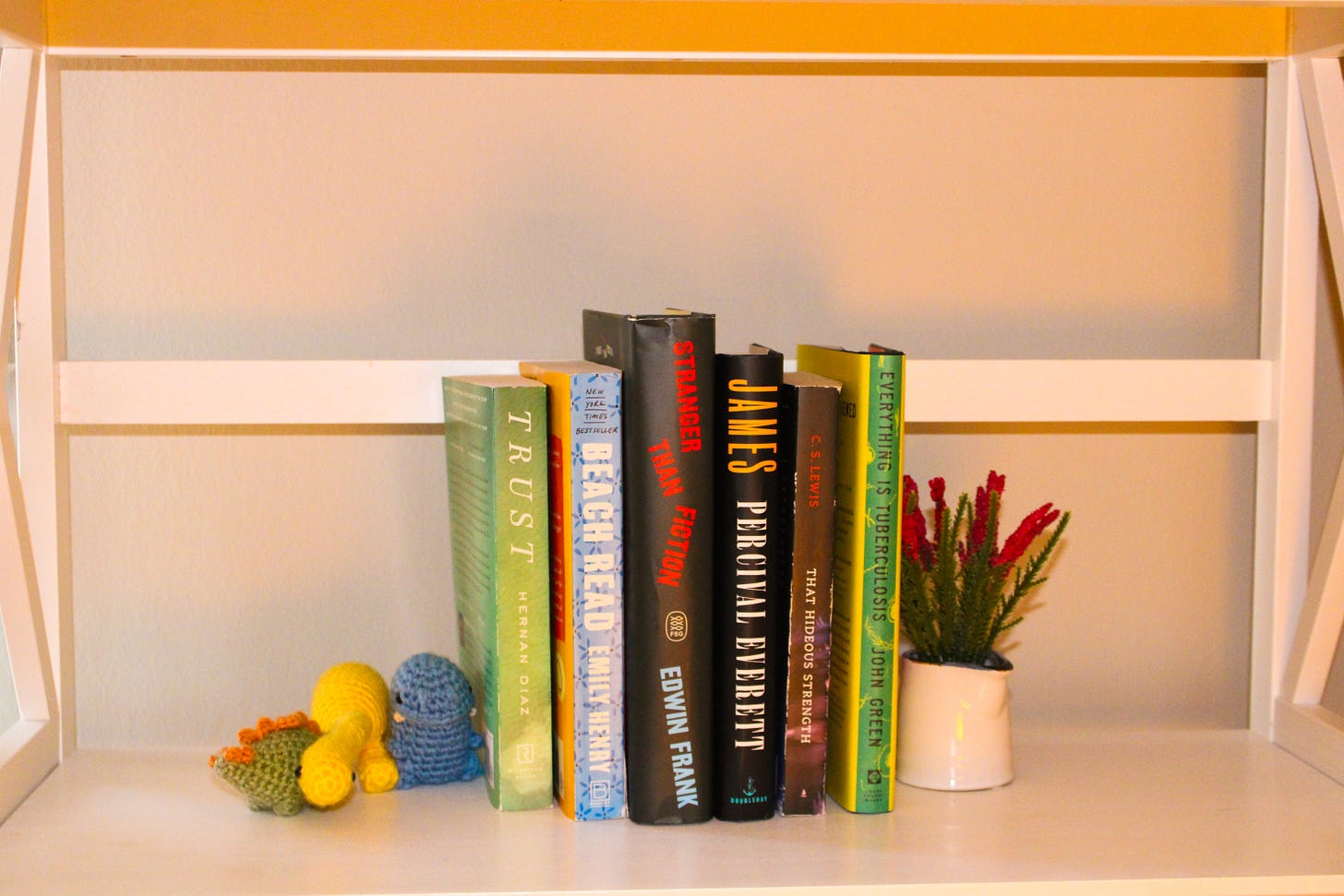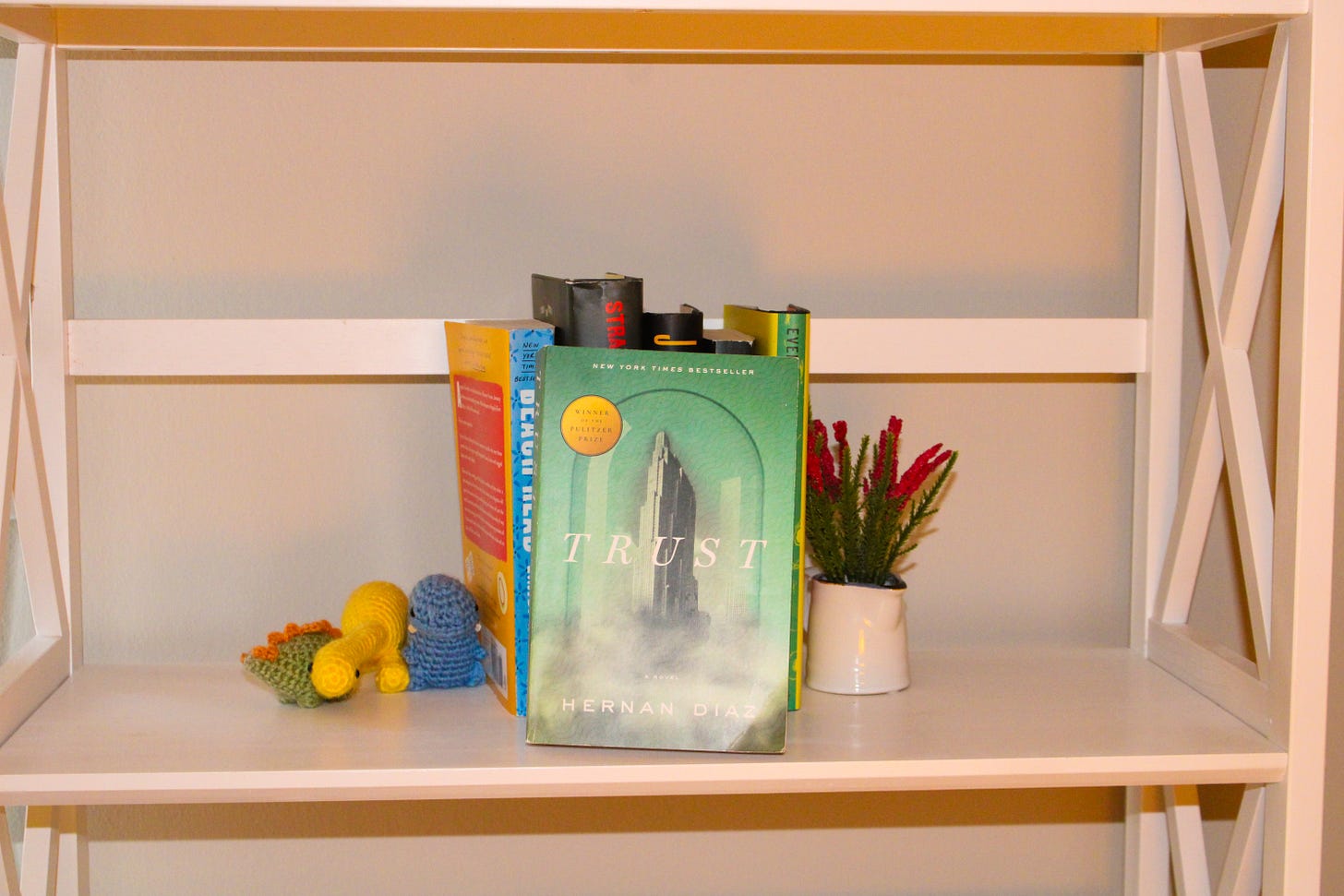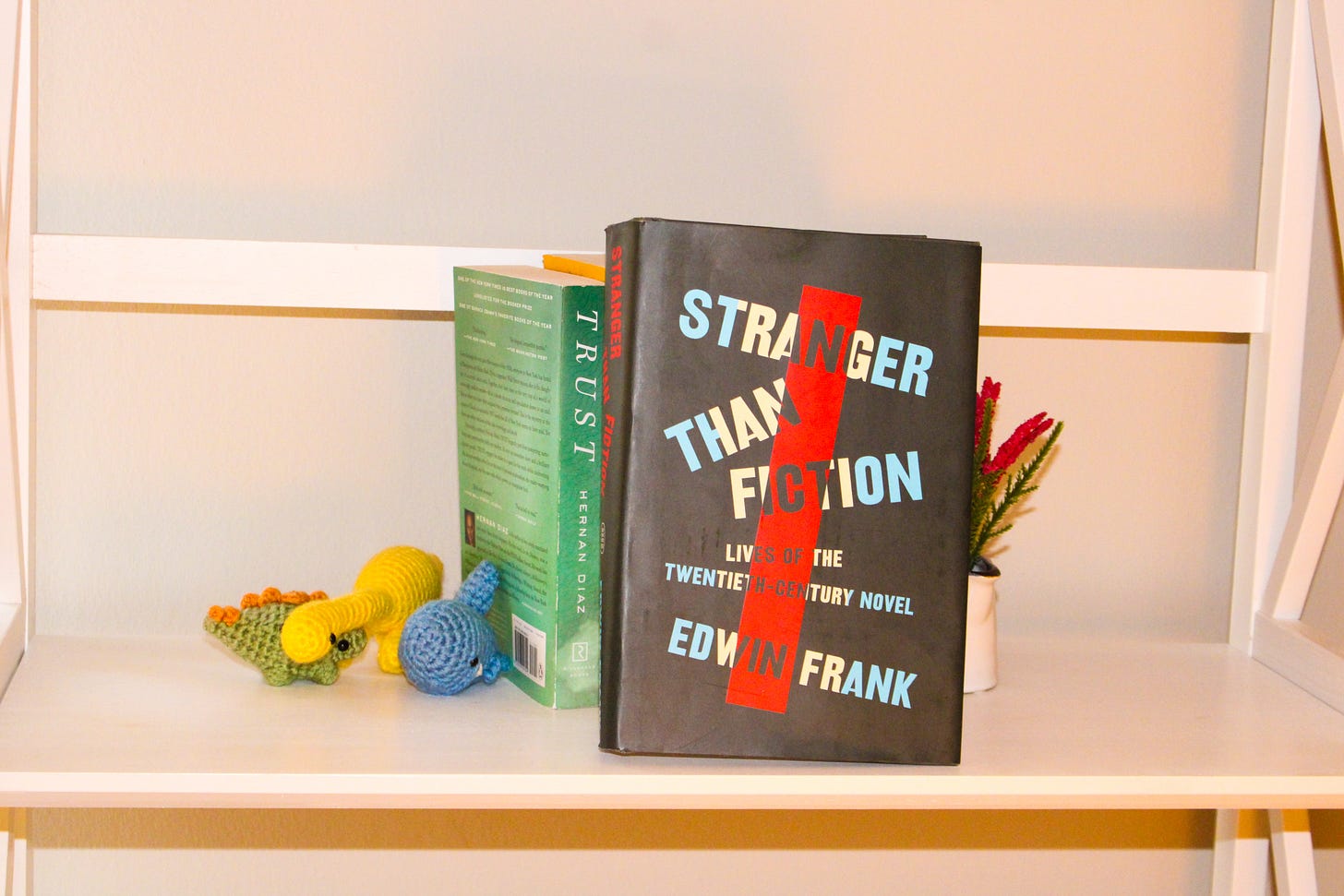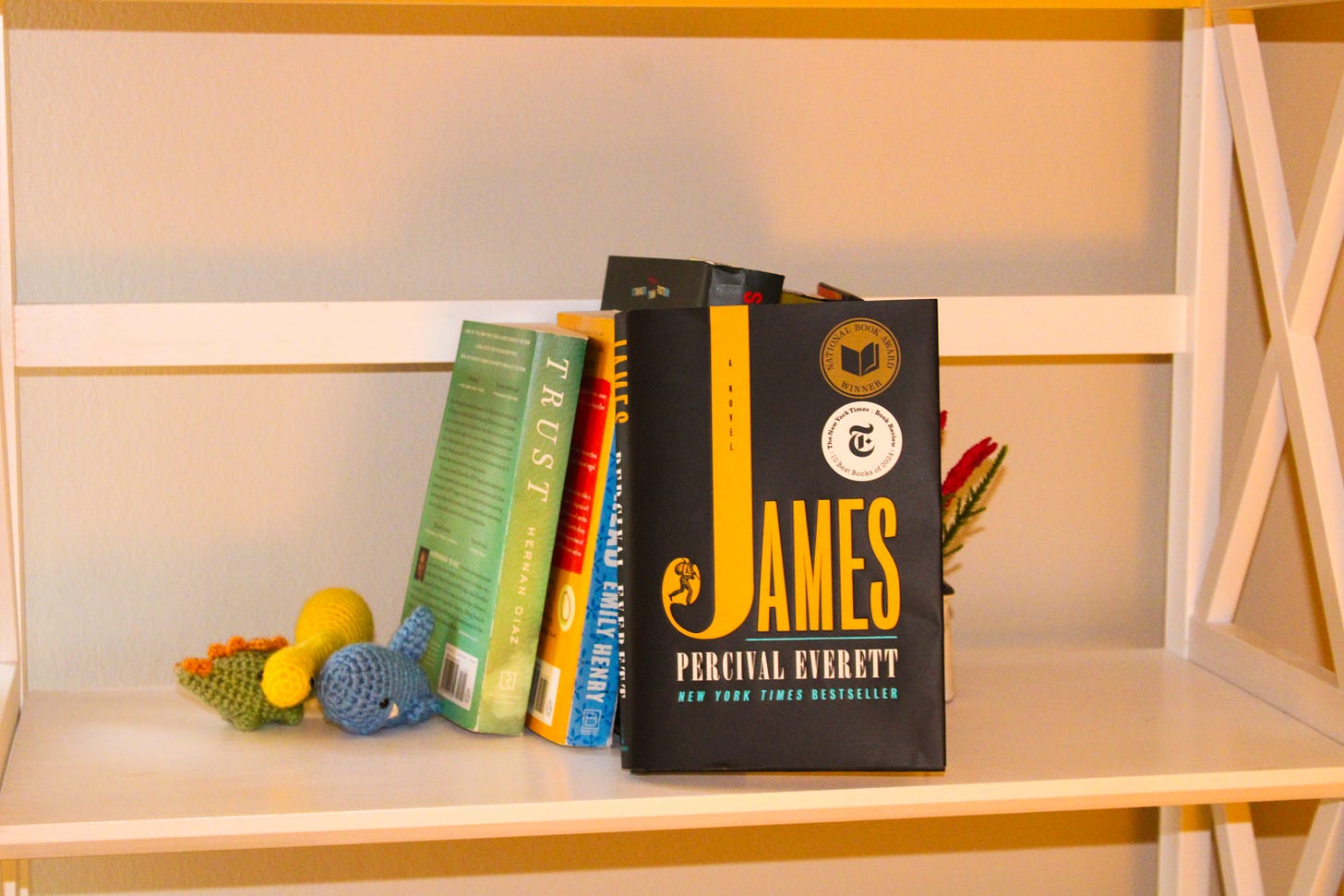Trust by Hernan Diaz
This was one of the most unique books I’ve read in awhile. Essentially, the novel tells the same story of a New York elite couple in four different ways: a fictional novel, a biography of the man, the memoir of the biographer, and the diary of the woman. Each version of the story paints a different picture of its subjects and their world. By the end, we might not have a clear grasp on the truth, but we have a cutting analysis of perspectives, legacy, and intimacy.
I recommend this novel to those interested in historical legacies and how a narrator can manipulate a story.
Stranger Than Fiction by Edwin Frank
As dense as it is insightful, this history of twentieth century novel gave me a new perspective on this era of literature. Frank breaks down the major developments in the novel through excerpts and analyses of its most impactful entries. There were plenty of books I knew and had read, but there were also several I added to my list. While this book is very academic, it also paints a narrative through the conversation between different novels. We see which authors are responding to whom and how their dynamics changed the landscape.
I recommend this novel to those who love to learn about books and have at least considered getting an English degree.
Beach Read by Emily Henry
After the challenge of Stranger Than Fiction, I was looking for an easy read to balance my brain out. This rom-com novel turned out to be the perfect option. I appreciate how much Henry understands the context of rom-com history and uses that to inform her characters. Nothing groundbreaking is happening here, but it was fun, sweet, and worry-free.
I recommend this to those who enjoy rom-coms or the works of Eve Babitz.
That Hideous Strength by C.S. Lewis
This novel is the third and final book in Lewis’ space trilogy. I probably would not have picked this up on my own, but my brothers and I have been reading these books together. As the third installment, it wraps up the conflicts nicely and has a relatively satisfying ending. The trilogy deals with a conflict between different planets in our solar system and the reluctant English professor who ends up at the conflict’s center. Lewis clearly has great ideas he would like to explore, but fiction does not seem to be his best way to explore them.
I recommend this book to big C.S. Lewis fans or those who enjoy mixing science fiction with religion.
James by Percival Everett
It may be an overstatement to say this novel is an instant classic, but I will say it anyway. This book blew me away. James is a retelling of Mark Twain’s classic Adventures of Huckleberry Finn from the perspective of Jim, the enslaved man with whom Huck goes on some of his adventures. This retelling adds incredible historical context and depth to all its characters. Jim gets to tell his own story, and in doing so, illuminates the complications that the original story glossed over. However, that critique is not done without a love of the source material. Everett clearly cares about this story and its characters, which allows him to give them the nuance they deserve.
I recommend this book to honestly everyone, but especially those who enjoy the works of Mark Twain.
Everything Is Tuberculosis by John Green
This book is exactly what it sounds like— a pocket history of tuberculosis and its outsized impact on the world. It is hard for me to read about scientific issues because they often do not feel personal, but Green shows why tuberculosis is actually incredibly personal. He mixes scientific discoveries with historical context, cultural trends, and personal narratives to create a nuanced picture of tuberculosis. In the process, Green also causes his readers to question our accepted realities of the world and shine a light on the realities of others. All of this and somehow the message is still one of resounding hope in humanity.
I recommend this book to everyone. John Green has convinced me that everything really is tuberculosis.










